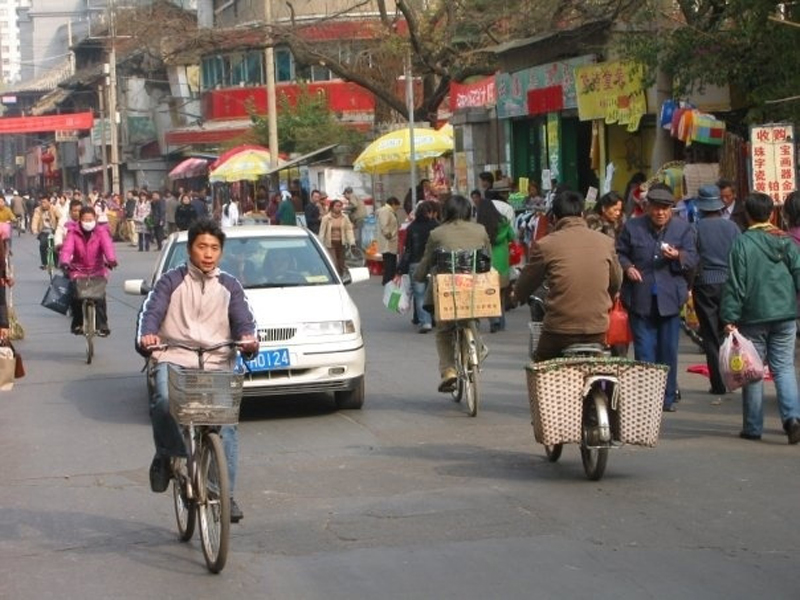Chapter 4, Fragile, excerpt from The Memories I Made Up by David Joannes
All too often we forget the stark fragility of life.
* * *
Traffic is stopped up on Xuefu Road. An angry man is sticking his head out of his vehicle, shaking his fist, shouting for the people outside to move. But the crowd in front of his vehicle is only growing larger and sweatier. Three college boys in slacks and pullover sweaters. Two nervous middle aged women. An old lady holding a small child by the hand, the child who is, of course, terrified. The little boy is gazing at the pool of blood on the pavement.
No one offers any help. That is not the rule. Everyone knows that as soon as you get involved in the tragedy of another man in China, you could end up the culprit in the story. And so the crowd of people in front of the angry man’s car keeps shuffling their feet as he yells. They murmur in a semi-circle, wide eyed and useless as the pool of blood seeps into the tiny cracks in the road.
The police have not yet arrived, but when they do they will first fill out their paperwork, snap a few pictures, yell at the crowd to back up, and determine whose fault the accident was. All the while the deplorable whimpering sound of the old man crying will beg to be recognized as someone of worth in a communist system that has stolen the respect from men.
I catch a glimpse of the old man cringing in pain through the gaps in between their legs. I see the same thing as the crowd, but somehow it does not convey the same meaning to them as it does to me. I hear the old man crying in agony, his right hand cradling his bloody head, as does the awkward crowd around him. But the sounds do not seem to invoke in them the same sensations as they do in my heart.
The redness oozes between his fingers. His gray hair is soaked, his legs still tangled in his mangled black bicycle. He looks about fifty-five years old. The back tire of his bicycle is popped, the rim crushed. The car behind him has a long black scrape along the front left wheel well, and the man who owns the vehicle is irate about the scratch.
I scrunch my eyebrows as I take it all in. I am sad and angry and I feel helpless in China today. “Can I really make a difference in this nation, God?” I ask under my breath. In my heart I know He has called me here. I know that He who called me is faithful, and He will complete the things that He has begun. But right now I wonder where is God in the midst of communist China.
The fifty-five year old man is still crying in pain. No one has stooped down to help him yet. His gray hair is stained crimson red. The irate man is still shaking his fist and yelling at the crowd. And there are sirens in the distance.
I shake my head, and begin walking down Xuefu Road, wondering what Jesus would have done had He been in China today. I wondered why I wasn’t the Jesus that the old man needed today.
“Can I really make a difference in this nation, God?”
“Of course you can. But not by keeping your distance from the pain you see all around you.”
* * *
The next day I pick up a copy of the Yunnan Daily. There is a photograph of a fifty-five year old man who was hit by a car on Xuefu Road. His legs are tangled up in his black bicycle. A crowd of people are gathered around his body. His skull is cracked from the impact of his fall. By the time the police arrive, he has already passed away.
The image is silent.
I squint at the black and white photograph and see myself on the far right hand corner, stepping out of the frame. Too often I walk on the far end of the Samaritan man’s road.



